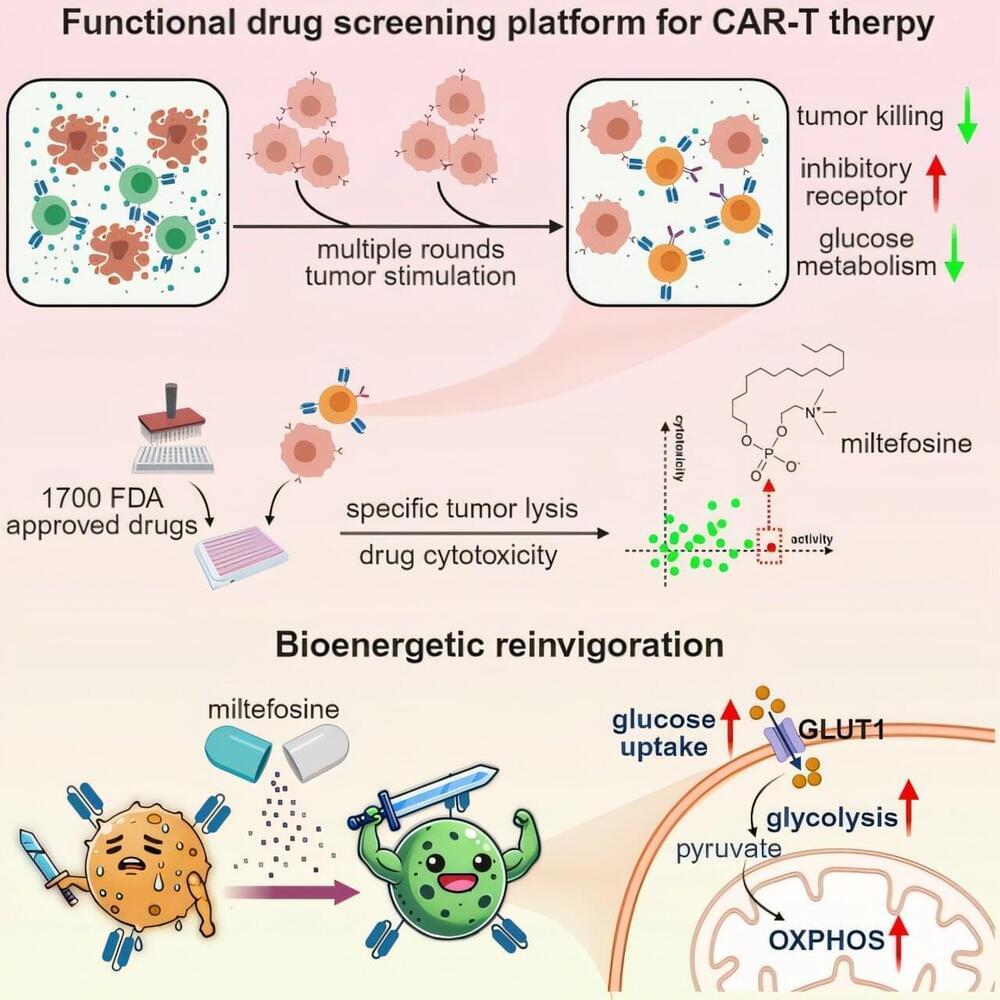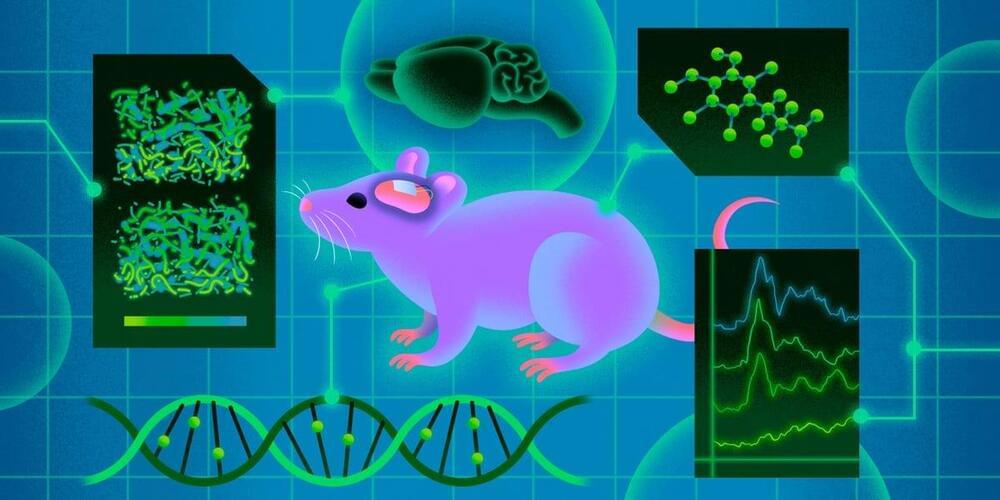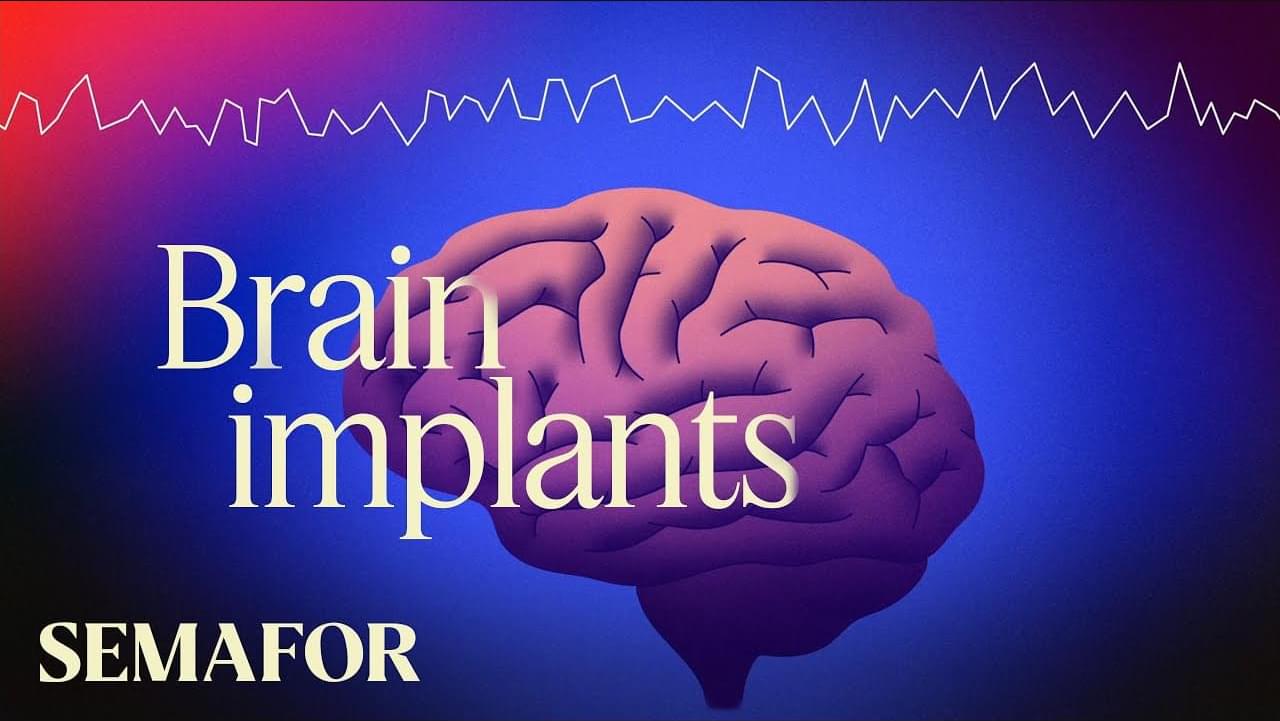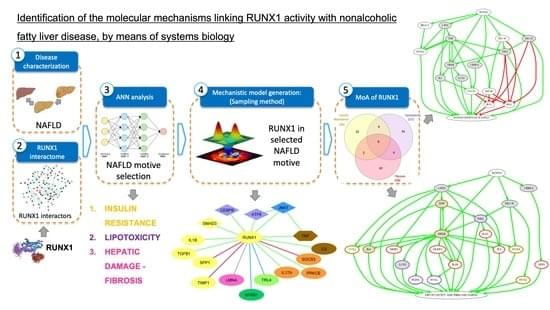Dec 13, 2024
Drug screening platform identifies compound for reinvigorating exhausted CAR-T cells
Posted by Shubham Ghosh Roy in categories: biotech/medical, innovation
A research team led by Prof. Wang Haoyi from the Institute of Zoology (IOZ) of the Chinese Academy of Sciences has developed a chimeric antigen receptor T (CAR-T) cell exhaustion model and a functional screening platform for identifying compounds that can rejuvenate exhausted T cells.
Using this innovative platform, the team identified the small-molecule compound miltefosine, which significantly enhances the tumor-killing activity of CAR-T cells. This study was published in Cell Reports Medicine on December 9.
T cell exhaustion is a differentiation state that arises when T cells are exposed to persistent antigen stimulation. This state is characterized by a progressive loss of effector functions, sustained expression of inhibitory receptors, impaired proliferation, and compromised mitochondrial respiration and glycolysis capacity.

















